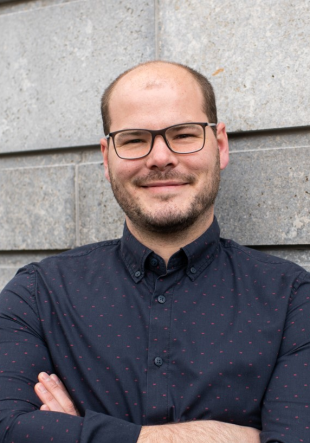There are many aspects to the energy transition in industry: Energy consumption must be reduced, processes must be electrified and demand must be met with green electricity and hydrogen. Integrated energy systems are the key to this. In the Paderborn district, electricity generation is dominated by renewable energies and many manufacturing companies are implementing sustainable business concepts - an ideal model region for a holistic energy transition. The University of Paderborn, BENTELER and Westfalen Weser are jointly presenting the concept at the ‘Week of the Environment’, to which Federal President Frank-Walter Steinmeier and the German Federal Environmental Foundation (DBU) are inviting visitors to the capital on 4 and 5 June. Around 190 exhibitors from business and technology, research and science as well as civil society will be presenting their pioneering solutions to current environmental issues in the park of Schloss Bellevue. Further information can be found on the event website.
‘We are already researching individual solutions for aspects of the energy transition in industry in various joint projects,’ explains Prof. Dr.-Ing. Henning Meschede from the Department of Energy System Technologies at the Department of Electrical Engineering and Information Technology at Paderborn University. The aim of the ‘Climate bOWL’ project, for example, is to optimise material and energy efficiency in order to avoid greenhouse gases. In the ‘Re²Pli’ project, scientists are testing how processes that were previously operated with fossil gas can be converted to electric operation. ‘The innovation of the model that we are presenting in Berlin lies in the fact that we are combining these building blocks with each other and incorporating the projects of our industrial partners in order to take a holistic view of the energy transition,’ explains Meschede.
Another piece of the puzzle is the ‘Sleeping Giant’ project, with which Westfalen Weser wants to use surplus wind energy in Lichtenau to produce green hydrogen for industry and hydrogen refuelling stations. The unavoidable waste heat will then be used to supply municipal heating.
As a manufacturer of steel and steel tubes, the BENTELER Group's Steel/Tube Division is part of the energy-intensive industry. In order to make production more climate-friendly, the Paderborn-based company wants to operate its plants electrically in future and use green hydrogen as an energy source. BENTELER Steel/Tube is already producing steel exclusively from scrap at its electric steelworks in Lingen, using green electricity to produce 85 per cent less direct CO2 emissions than the conventional blast furnace route.
Using the diverse industrial landscape in Paderborn as an example, the co-operation partners BENTELER, Westfalen Weser and the University of Paderborn are presenting a blueprint for sustainable, regional value chains at the ‘Week of the Environment’.
About the project partners
BENTELER Steel/Tube develops and produces steel as well as seamless and welded quality steel tubes. As one of the leading manufacturers, the company offers its customers worldwide solutions along the entire value chain - from material development to tube application. In this way, they create customised tube products for the automotive, energy and industrial markets. The CliMore® product family, launched in 2023, saves up to 85 per cent of CO2 emissions compared to conventional steel production by using recycled material instead of ore and green electricity. This enables customers to effectively reduce their upstream emissions from the purchase of goods and thus achieve their climate targets.
Westfalen Weser builds and operates regional distribution networks for electricity, gas and water. As a driver of innovation, the company also develops supply concepts for business and private customers as well as for local authorities: with sustainable and future-proof solutions for heating, cooling, compressed air, water and the use of fuel cells, among other things, they make a contribution to the energy transition in the region. As a municipal company, Westfalen Weser is wholly owned by local authorities and districts in Ostwestfalen-Lippe and Weserbergland. Westfalen Weser Energie GmbH & Co. KG is the holding company responsible for managing the entire group of companies. Westfalen Weser Netz GmbH and Energieservice Westfalen Weser GmbH are responsible for the operational business.
This text has been translated automatically.



